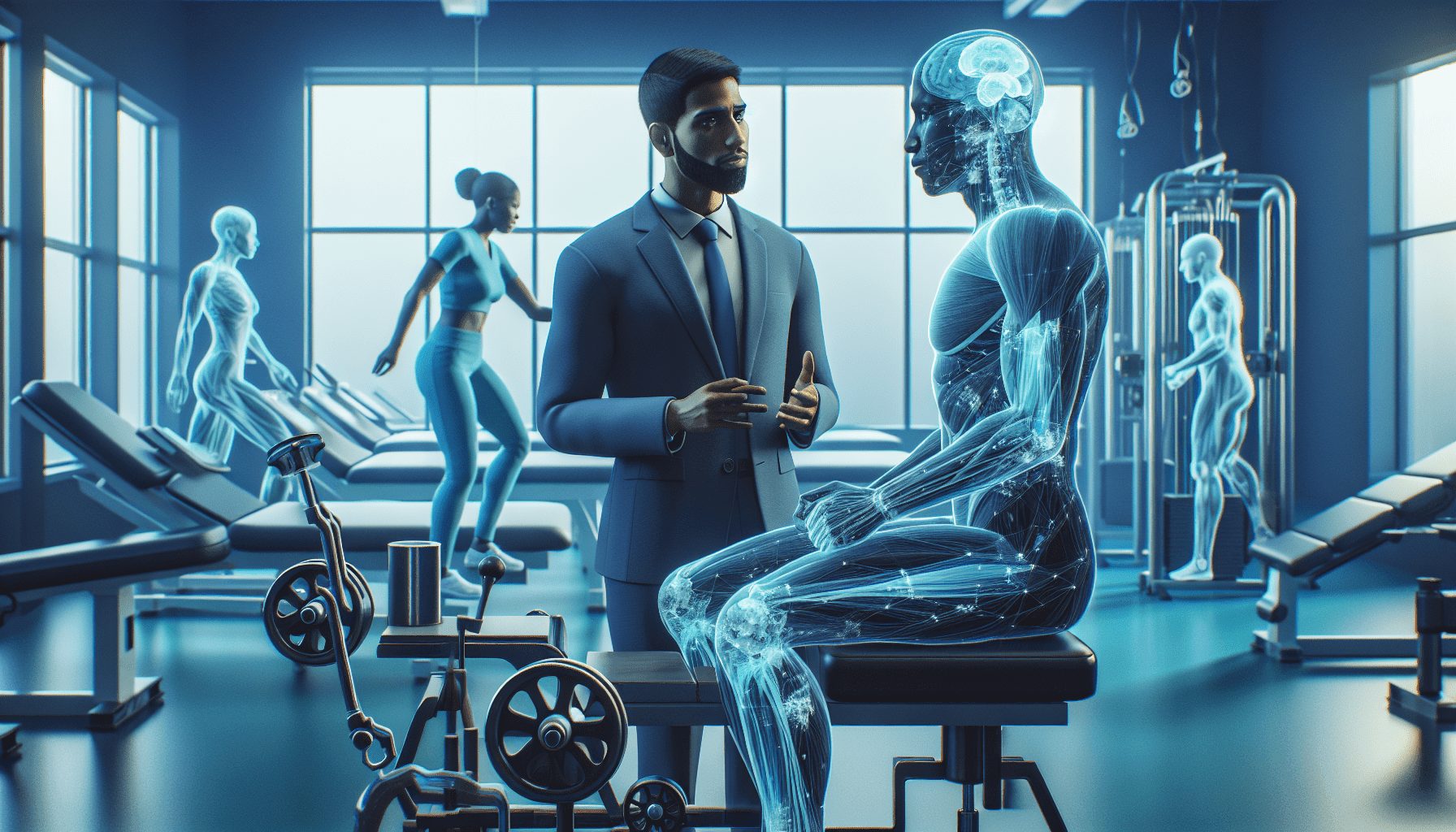Harnessing the Power of Artificial Intelligence in Recruitment
Explanation of artificial intelligence in recruitment
Artificial intelligence (AI) has revolutionized various industries, and recruitment is no exception. In recent years, AI has emerged as a powerful tool for streamlining and improving the recruitment process. By leveraging advanced algorithms and machine learning, AI technology can assist recruiters in finding the best candidates for a job opening efficiently and effectively.
At its core, AI in recruitment involves the use of intelligent software and algorithms to automate and enhance various stages of the hiring process. From sourcing candidates to screening resumes and conducting interviews, AI can handle repetitive tasks, analyze large volumes of data, and provide valuable insights to recruiters. This allows them to make more informed decisions and ultimately find the right fit for the organization.
One of the key benefits of AI in recruitment is its ability to expedite the hiring process. Traditionally, recruiters would spend countless hours reviewing resumes and conducting initial screenings. With AI-powered resume screening tools, however, this time-consuming task can be automated, saving recruiters valuable time and allowing them to focus on more strategic aspects of the hiring process.
Moreover, AI can significantly improve candidate screening by analyzing resumes, cover letters, and other relevant documents to identify the most qualified candidates based on predefined criteria. This not only ensures a fair and objective evaluation but also increases the chances of finding the best fit for the role.
In addition to expediting the hiring process and improving candidate screening, AI also enhances the candidate experience. Through the use of AI chatbots, candidates can interact with automated systems to receive prompt responses to their queries, schedule interviews, and even receive feedback on their application status. This personalized and efficient communication not only improves the overall candidate experience but also reflects positively on the employer brand.
Furthermore, AI enables data-driven decision making in recruitment. By analyzing vast amounts of data, AI algorithms can identify patterns and trends that may not be immediately apparent to human recruiters. This data-driven approach allows organizations to make more informed decisions regarding candidate selection, talent acquisition strategies, and overall recruitment effectiveness.
Lastly, AI in recruitment helps reduce bias in the hiring process. Human recruiters may unconsciously exhibit biases based on factors such as gender, race, or educational background. AI algorithms, on the other hand, can be programmed to focus solely on relevant qualifications and skills, minimizing the impact of bias in candidate evaluation.
In the following sections, we will delve into the various applications of AI in recruitment, discuss concerns and limitations, and explore best practices for implementing AI in recruitment processes. So, join us on this journey as we explore the exciting potential of AI in revolutionizing the recruitment landscape.
Continue reading: Applications of Artificial Intelligence in Recruitment
Benefits of Artificial Intelligence in Recruitment
Artificial intelligence (AI) has revolutionized the recruitment process, providing numerous benefits that contribute to a faster, more efficient, and data-driven hiring process. By leveraging AI technology, recruiters can streamline their operations, improve candidate screening, enhance the candidate experience, make data-driven decisions, and reduce bias in hiring.
Faster and More Efficient Hiring Process
One of the key advantages of AI in recruitment is its ability to expedite the hiring process. Traditionally, recruiters would spend a significant amount of time manually reviewing resumes, scheduling interviews, and conducting screenings. However, with the advent of AI, tasks that once consumed hours of recruiters’ time can now be completed in a fraction of the time.
AI-powered systems can automatically screen resumes and identify the most qualified candidates, saving recruiters countless hours of manual effort. These systems use sophisticated algorithms to analyze keywords, experience, and qualifications, allowing recruiters to focus their attention on the most promising candidates. By automating time-consuming tasks, AI enables recruiters to dedicate more time to building relationships with candidates and creating a positive hiring experience.
Improved Candidate Screening
AI technology has significantly improved candidate screening by providing recruiters with a more accurate and efficient way to assess candidates’ qualifications. Using natural language processing (NLP) algorithms, AI systems can analyze resumes, cover letters, and other application materials to identify relevant skills, experiences, and qualifications.
With AI-powered screening tools, recruiters can quickly filter through a large volume of applications and identify the most suitable candidates for a given role. These tools can also help identify potential red flags, such as gaps in employment or inconsistencies in qualifications, allowing recruiters to make informed decisions during the screening process.
Enhanced Candidate Experience
In today’s competitive job market, providing a positive candidate experience is crucial for attracting top talent. AI technology plays a crucial role in enhancing the candidate experience by providing timely and personalized interactions throughout the recruitment process.
Chatbots, for example, can be integrated into recruitment platforms to provide instant responses to candidates’ queries, offer information about the company and the position, and guide candidates through the application process. These chatbots can simulate human-like conversations, making candidates feel supported and engaged throughout their journey.
Additionally, AI-powered platforms can leverage data analytics to personalize the candidate experience. By analyzing candidates’ preferences, past interactions, and application history, recruiters can tailor their communication and engagement strategies, ensuring a more personalized and engaging experience for each candidate.
Data-Driven Decision Making
With the abundance of data available in the recruitment process, AI technology enables recruiters to make more informed and data-driven decisions. AI-powered recruitment platforms can collect and analyze vast amounts of data, including candidate profiles, assessment results, and performance metrics.
By leveraging this data, recruiters can identify patterns and trends that can inform their decision-making process. For example, AI algorithms can identify the characteristics and qualifications of successful hires, enabling recruiters to prioritize candidates who possess those attributes.
Furthermore, AI can provide valuable insights into the effectiveness of recruitment strategies and processes. Recruiters can track metrics such as time-to-hire, cost-per-hire, and source of hire, allowing them to optimize their recruitment efforts and allocate resources more effectively.
Reduced Bias in Hiring
Unconscious bias has long been a challenge in the recruitment process, leading to the exclusion of qualified candidates and perpetuating inequalities. AI technology offers a solution to this issue by minimizing bias in hiring decisions.
AI algorithms can be trained to focus solely on objective criteria when screening candidates, eliminating subjective biases that may influence human decision-making. By relying on data-driven insights rather than personal judgments, AI systems help ensure a fair and equitable hiring process.
However, it is important to note that AI algorithms are not immune to bias themselves. It is crucial for recruiters to regularly evaluate and monitor the algorithms to ensure they are not inadvertently perpetuating biases. Human oversight and involvement are necessary to ensure a balanced and inclusive recruitment process.
In conclusion, the benefits of AI in recruitment are undeniable. From expediting the hiring process and improving candidate screening to enhancing the candidate experience and enabling data-driven decision making, AI technology has transformed the way recruiters attract and select talent. By embracing AI tools and platforms, recruiters can optimize their processes, reduce bias, and ultimately find the best candidates for their organizations.
Applications of Artificial Intelligence in Recruitment
Artificial intelligence (AI) has revolutionized the recruitment process, offering a wide range of applications that streamline and optimize various aspects of hiring. From resume screening to predictive analytics, AI-powered tools and platforms have become invaluable assets for recruiters aiming to attract top talent efficiently and effectively. Let’s explore some of the key applications of AI in recruitment:
Resume Screening
Traditionally, recruiters would spend countless hours manually reviewing resumes to identify qualified candidates. However, with the advent of AI in recruitment, resume screening has become a breeze. AI-powered algorithms can swiftly analyze resumes, extracting key information such as education, skills, and work experience. By leveraging natural language processing and machine learning, AI can identify candidates who closely match the requirements of a job posting, saving recruiters valuable time and effort.
Chatbots for Candidate Interaction
Another innovative application of AI in recruitment is the use of chatbots for candidate interaction. Chatbots are virtual assistants that can engage with candidates, answer their queries, and provide relevant information about a company and its job openings. These AI-driven chatbots are available 24/7, ensuring a seamless and personalized candidate experience. With their ability to handle multiple conversations simultaneously, chatbots contribute to faster response times, enhancing candidate engagement and satisfaction.
Video Interview Analysis
AI has also made significant advancements in video interview analysis, transforming the way interviews are conducted and assessed. AI-powered platforms can analyze video interviews, capturing important cues such as facial expressions, tone of voice, and body language. This analysis provides recruiters with valuable insights into a candidate’s communication skills, confidence level, and cultural fit. By leveraging AI in video interview analysis, recruiters can make more informed decisions and select candidates who align with the organization’s values and requirements.
Predictive Analytics for Candidate Match
Predictive analytics is another powerful application of AI in recruitment. By analyzing vast amounts of historical data, AI algorithms can predict which candidates are most likely to succeed in a specific role. These algorithms consider factors such as past hiring patterns, employee performance, and external market data to identify the ideal candidate match. By leveraging predictive analytics, recruiters can make data-driven decisions, increasing the likelihood of finding the right talent for their organization.
Incorporating AI into the recruitment process offers numerous benefits, including improved efficiency, enhanced candidate experience, and reduced bias. However, it is essential to be aware of the concerns and limitations associated with AI in recruitment. In the next section, we will explore the ethical considerations, potential bias in algorithms, and the importance of human touch in the recruitment process. Stay tuned!
Internal links:
- To learn more about AI in recruitment, check out our article on AI recruitment.
- Discover the best AI tools for recruiting to optimize your hiring process.
- Looking for AI recruiting software? Check out our recommendations for the best AI recruiting software available in the market.
- Explore the top AI recruiting tools that can revolutionize your recruitment strategy.
Concerns and Limitations of Artificial Intelligence in Recruitment
As with any emerging technology, the use of Artificial Intelligence (AI) in recruitment comes with its fair share of concerns and limitations. While AI has the potential to revolutionize the hiring process, it is important to address these issues to ensure a fair and effective recruitment strategy.
Ethical Considerations
One of the primary concerns when using AI in recruitment is the ethical implications. AI algorithms are trained on historical data, which means they can inadvertently perpetuate biases present in the data. This can result in discrimination against certain demographics or perpetuate existing inequalities. For example, if a company predominantly hires candidates from a certain background, the AI algorithm may favor candidates with similar characteristics, perpetuating a lack of diversity in the workforce.
To mitigate these ethical concerns, it is crucial for organizations to regularly audit and monitor their AI algorithms. By continuously evaluating and refining the algorithms, biases can be identified and addressed. Additionally, it is important to ensure that the data used to train AI models is diverse and representative of the entire candidate pool.
Potential Bias in Algorithms
Closely related to ethical considerations, potential bias in AI algorithms is a significant limitation. AI algorithms learn from the data they are fed, and if the data contains biased information, the algorithm will reflect that bias in its decision-making process. This can lead to unfair treatment of candidates based on factors such as gender, race, or age.
To overcome this limitation, organizations must employ rigorous testing and validation procedures for their AI algorithms. This includes regularly monitoring the algorithm’s performance for any indications of bias and taking corrective measures when necessary. Additionally, involving a diverse group of stakeholders, including HR professionals and data scientists, in the development and implementation of AI algorithms can help identify and rectify potential biases.
Lack of Human Touch
While AI technology offers numerous benefits in recruitment, one of its limitations is the lack of human touch. Recruitment is a highly personal and subjective process, and AI algorithms may struggle to fully understand and evaluate certain intangible qualities that are important for a role. Factors such as cultural fit, interpersonal skills, and emotional intelligence are often best assessed by human recruiters through face-to-face interactions.
To address this limitation, organizations should strike a balance between AI and human involvement in the recruitment process. AI can be used to automate repetitive tasks, such as resume screening and initial candidate assessments, allowing recruiters to focus their time and energy on building meaningful relationships with candidates. By leveraging the strengths of both AI and human recruiters, organizations can create a more comprehensive and personalized recruitment experience.
In conclusion, while AI brings numerous benefits to the recruitment process, it is important to be mindful of the concerns and limitations associated with its use. By considering ethical considerations, addressing potential bias in algorithms, and maintaining a balance between AI and human involvement, organizations can harness the power of AI in recruitment while ensuring fairness and effectiveness in their hiring practices.
Best Practices for Implementing Artificial Intelligence in Recruitment
When it comes to implementing artificial intelligence (AI) in the recruitment process, it’s essential to follow best practices to ensure optimal results. Here are some key strategies to consider:
Set Clear Goals and Objectives
Before integrating AI into your recruitment process, it’s crucial to define clear goals and objectives. Determine what you aim to achieve by leveraging AI technology. Whether it’s improving time-to-hire, enhancing candidate quality, or increasing efficiency, having specific goals will guide your AI implementation strategy. By clearly defining your objectives, you can align your AI tools and platforms accordingly.
Choose the Right AI Tools and Platforms
Selecting the right AI tools and platforms is paramount for successful implementation. With a plethora of options available, it’s crucial to conduct thorough research and choose the ones that align with your recruitment needs. Consider factors such as accuracy, customizability, and integration capabilities when evaluating AI recruiting software. Look for solutions that offer features like AI resume screening, chatbots for candidate interaction, video interview analysis, and predictive analytics for candidate matching. These tools can streamline your recruitment process and deliver actionable insights.
Train and Educate Recruiters
To effectively utilize AI in recruitment, it’s imperative to train and educate your recruiters. Provide them with comprehensive training on how to leverage AI tools and platforms. This training should cover topics such as data interpretation, algorithm understanding, and ethical considerations. By equipping your recruiters with the necessary knowledge and skills, they can make informed decisions and fully harness the potential of AI technology.
Monitor and Evaluate Performance
Implementing AI in recruitment is an ongoing process that requires continuous monitoring and evaluation. Regularly monitor the performance of your AI tools and platforms to ensure they are delivering the desired outcomes. Track metrics such as time saved, candidate quality, and hiring success rate to assess the effectiveness of AI in your recruitment process. By analyzing these metrics, you can identify areas for improvement and make informed adjustments to optimize your AI implementation.
Maintain Human Involvement and Oversight
While AI can significantly enhance the recruitment process, it’s crucial to maintain human involvement and oversight. Remember that AI tools are designed to augment human decision-making, not replace it. Human judgment and intuition are still invaluable in evaluating candidates and making strategic hiring decisions. Therefore, it’s essential to strike a balance between AI automation and human expertise. Ensure that recruiters have the final say in hiring decisions and that AI recommendations are thoroughly evaluated before making any final choices.
By following these best practices, you can effectively implement AI in recruitment while maximizing its benefits and minimizing its limitations. Embracing AI technology can revolutionize your recruitment process, enabling you to attract top talent efficiently and make data-driven decisions that lead to long-term success.
To learn more about AI in recruitment and explore the best AI tools and platforms available, visit Engaged Headhunters.
Conclusion
In conclusion, harnessing the power of Artificial Intelligence (AI) in recruitment has the potential to revolutionize the hiring process. The benefits of incorporating AI into recruitment practices are numerous, ranging from faster and more efficient hiring processes to improved candidate screening and enhanced candidate experiences. With data-driven decision making at its core, AI enables recruiters to make informed choices and reduce bias in the hiring process.
The applications of AI in recruitment are vast and varied. From resume screening to utilizing chatbots for candidate interaction, AI can streamline and automate various aspects of the recruitment process. Additionally, AI can analyze video interviews and employ predictive analytics to match candidates with job requirements, ensuring a more efficient and accurate selection process.
However, it is important to consider the concerns and limitations of AI in recruitment. Ethical considerations, such as potential bias in algorithms, need to be addressed to ensure fairness and inclusivity. While AI can expedite the hiring process, there is a risk of losing the human touch that is vital for building relationships with candidates.
To successfully implement AI in recruitment, it is essential to follow best practices. Setting clear goals and objectives will help align AI tools and platforms with organizational needs. Choosing the right AI tools and platforms is crucial for seamless integration and optimal results. Additionally, training and educating recruiters on AI technology will enable them to effectively leverage its capabilities. Monitoring and evaluating performance will ensure continuous improvement, while maintaining human involvement and oversight will strike a balance between automation and personalization.
In conclusion, AI has the potential to revolutionize the recruitment industry, making the process faster, more efficient, and unbiased. By incorporating AI tools and platforms, organizations can optimize their recruitment strategies and find the best candidates for their positions. While AI can enhance the recruitment process, it is important to approach its implementation with care and consideration, ensuring that the human element is not overlooked.
To learn more about AI in recruitment and explore the best AI tools for the hiring process, visit Engaged Headhunters, an AI recruitment agency specializing in AI-based recruitment platforms and software. They offer a range of AI recruiting tools designed to streamline and optimize the hiring process, ensuring organizations find the right talent for their needs.







